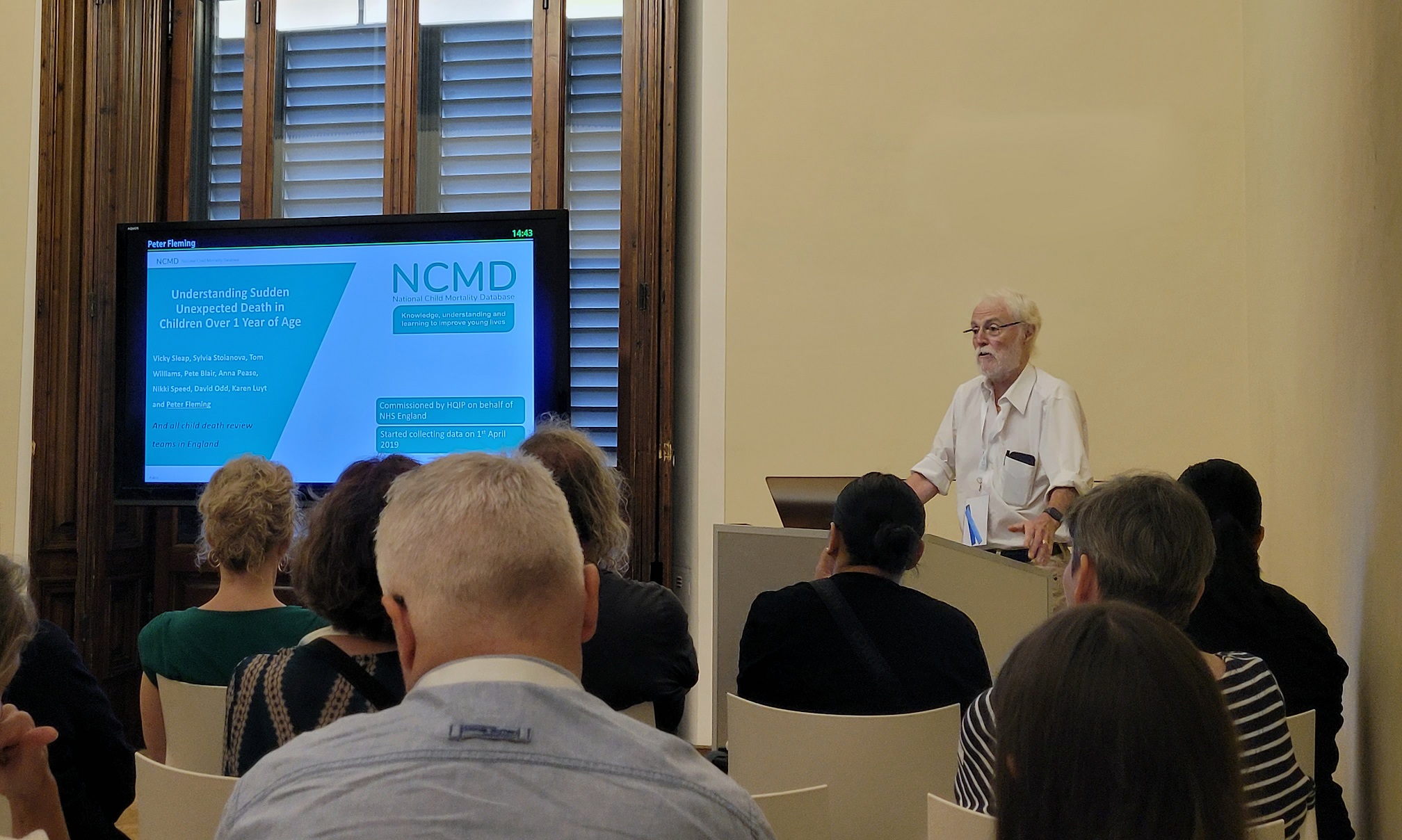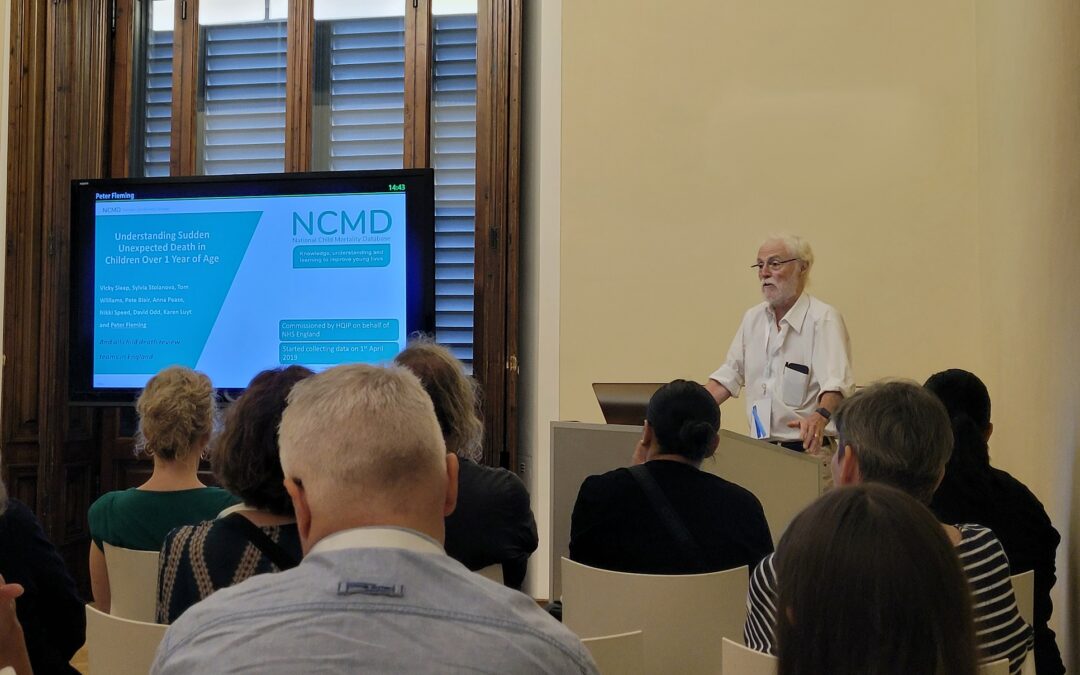
by Vicky Sleap, NCMD Deputy Director.
Last week Sylvia and I had the pleasure of attending the International Society for the Study and Prevention of Perinatal and Infant Death (ISPID) International Conference on behalf of NCMD. ISPID work to discover evidence-based preventive measures for preventing and reducing stillbirth and sudden infant death. They also work to promote improved quality and standardisation of care for bereaved parents, and help families, professionals, and scientists to network through resource sharing. We were at the conference, along with Professor Peter Fleming, presenting NCMD data on sudden and unexpected deaths in infants and children from our recent report Sudden and Unexpected Deaths in Infancy and Childhood.
It was an amazing thing to be a part of. There were academic and clinical representatives there from across the world, from countries including Australia, the USA, The Netherlands, Columbia, Norway and France. There were also bereaved parents and charities present including our partners the Lullaby Trust.
The conference opened with a moving tribute to some of the babies and children worldwide who have died suddenly and without explanation. The opening session was about bereavement, and there was a wonderful presentation from Dr Stacy Scott from the USA who talked about the experience of grieving black families and some of the inequities they face in the systems and processes that happen when their children die. Dr Scott drew on her own experience as a descendant of enslaved people to give a very powerful and emotional presentation.
Throughout the next few days of the conference, we heard about new research and interventions being used in other countries including a presentation from Norway called “Am I a criminal?” on work they have done looking at how parents experience the police investigation after the sudden death of a child and a new SUDI risk assessment system being rolled out in New Zealand.
A workshop session was dedicated to smoking prevention initiatives in the UK. We heard about the results from an NHS pilot in Cumbria supporting pregnant smokers to quit with financial incentives. Professor Caitlin Notley from Norwich Medical School talked about the Baby Breathe trial, which aims to prevent relapse to smoking postnatally – this being as important as quitting smoking during pregnancy, as unexplained deaths in infancy are strongly associated with parental smoking.
There were other areas of discussion such as pathology and pathophysiology that were of less relevance to Sylvia and I, but still of vital importance to our global understanding of SUDI and SUDC deaths.
The NCMD oral presentation given by Professor Fleming was very well received and was the first time that data on deaths of children over 1 year of age had been presented in this forum. Our poster presentation, which compared the unexplained with the explained deaths of children under 1 year of age that die unexpectedly, had a lot of visitors – and we had the opportunity to talk about the CDR process and the work we do within NCMD. Very few other countries have a child death review process and for most of those that do, it is not statutory – so the fact that we do gives us a big advantage in England when it comes to investigating child deaths, finding answers for parents and understanding why children die.
The conference closed with the presentation of awards for some of the distinguished researchers, charities and students who had contributed, and with a renewal of everyone’s determination to continue to work to try and prevent such deaths from happening. We have had the opportunity to play a small part in that story, as have all the CDR professionals we work with, and I hope it is heartening for you all to know what a difference the work you do every day can make.

